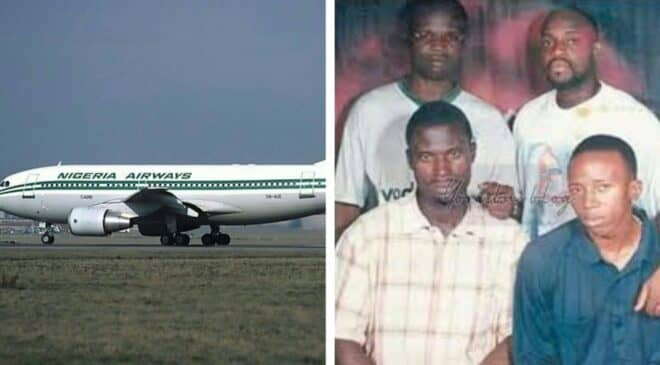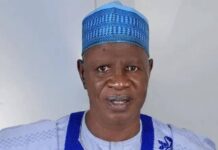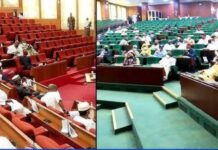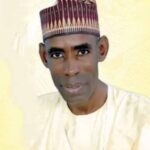Hijacked Dreams: From 1993 hijack to today’s Nigeria—Is democracy real? by, Sakinat Musa Abubakar
In October 1993, four young Nigerians hijacked a commercial flight to amplify their demand for democracy—a risky yet symbolic gesture that highlighted the desperation many felt under military rule. For them, democracy was not just about electing leaders; it represented freedom, accountability, and the will of the people. Over three decades later, as Nigeria remains a democracy in name, a critical question lingers: has Nigeria truly achieved the democracy they fought for?
1993 Hijack: The Longing for True Representation
The hijackers of Nigeria Airways Flight 925, like many Nigerians of their time, yearned for a government that represented the people’s voice. Military regimes had stifled opposition, and promises of civilian rule had repeatedly been broken. When the June 12, 1993 election was annulled, dashing hopes for democratic leadership under Chief Moshood Abiola, the message was clear: Nigeria’s ruling elites were more committed to holding onto power than to serving the people’s interests. The dramatic hijacking was a declaration that Nigerians were no longer willing to remain silent.
Their act served as a rallying cry, not just against military rule, but for the establishment of a government that would honour the principles of democracy—transparency, accountability, and justice.
Today’s Nigeria: Democracy in Name or Practice?
Since 1999, Nigeria has held regular elections, and the military has stayed in the barracks. On paper, these are markers of democratic progress. Yet, despite these gains, today’s Nigeria often reflects many of the same frustrations that fueled the 1993 hijacking. Elections are frequently marred by accusations of corruption, vote-buying, and violence. Voter apathy is high, and many Nigerians feel that elected officials are more interested in serving their personal interests than the public good.
READ ALSO: Edo guber and opportunity to reset Nigerian politics, by Sakinat Musa Abubakar
Economic hardship, lack of accountability, and limited opportunities for young Nigerians paint a sobering picture. Despite Nigeria’s democratic structure, millions still struggle with daily challenges that limit their voice in the country’s direction. Corruption scandals continue to implicate high-ranking officials, siphoning resources from essential services like healthcare, education, and infrastructure. Much like the military regimes of the past, some elected leaders seem far removed from the people they serve.
A People’s Democracy or an Elite’s Democracy?
Many Nigerians now question whether the current system of government is truly democratic. A genuine democracy serves the people’s interests and remains responsive to their needs. However, Nigeria’s wealth disparity, coupled with political inaction, has created a scenario where a few elites seem to wield disproportionate influence. Today, ordinary Nigerians still struggle for opportunities, fair representation, and even basic human rights, mirroring the very conditions that led to the 1993 hijacking.
Across the nation, protests, such as the #EndBadGovernance, have become symbols of disillusionment. These protests highlight the frustration felt by Nigerians who seek safety, justice, and respect from their leaders. Despite the constitutional protections offered under democracy, the struggle for these rights has led many to question whether democratic ideals have genuinely taken root in Nigeria.
Is the Promise of Democracy Still Within Reach?
In the wake of these ongoing challenges, Nigerians find themselves echoing the call of the Flight 925 hijackers. Democracy remains the goal, but achieving a version that reflects the people’s true aspirations requires tackling deep-rooted issues: corruption, accountability, and a commitment to the public good. While Nigeria has undoubtedly moved beyond the days of military dictatorship, democracy’s promise remains a work in progress, one that depends on the will of the people to hold leaders accountable.
For Nigeria to truly become the democracy envisioned in 1993, where governance is defined by the people’s interests, the collective voice must continue to push for reform. Every election, protest, and act of civic engagement today carries forward the spirit of that hijacking, a reminder that Nigerians have always been willing to fight for a government that listens, protects, and serves.
As Nigeria moves forward, the question remains: will the nation honour the legacy of those who risked everything in the name of democracy, or will the promise of 1993 remain an unfulfilled dream? The answer rests in the hands of both leaders and citizens to redefine what democracy means in Nigeria—and to make it truly democratic.
Follow the Neptune Prime channel on WhatsApp:
Do you have breaking news, interview request, opinion, suggestion, or want your event covered? Email us at neptuneprime2233@gmail.com





